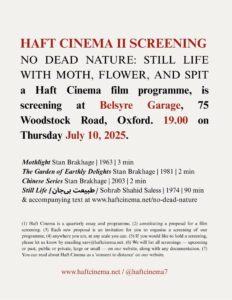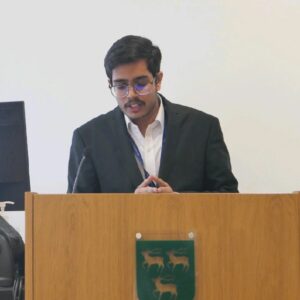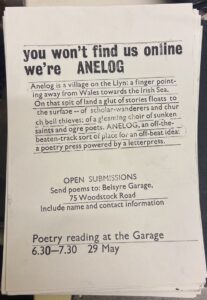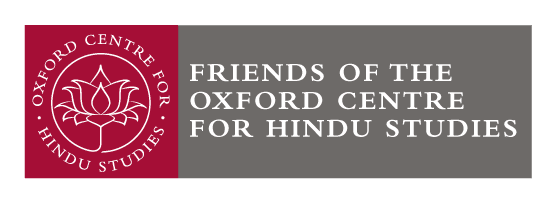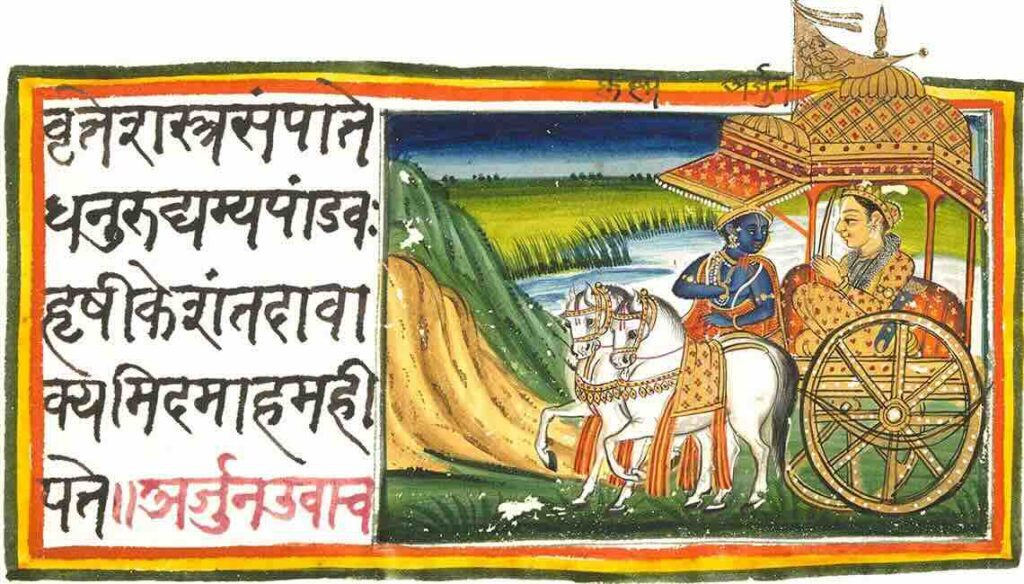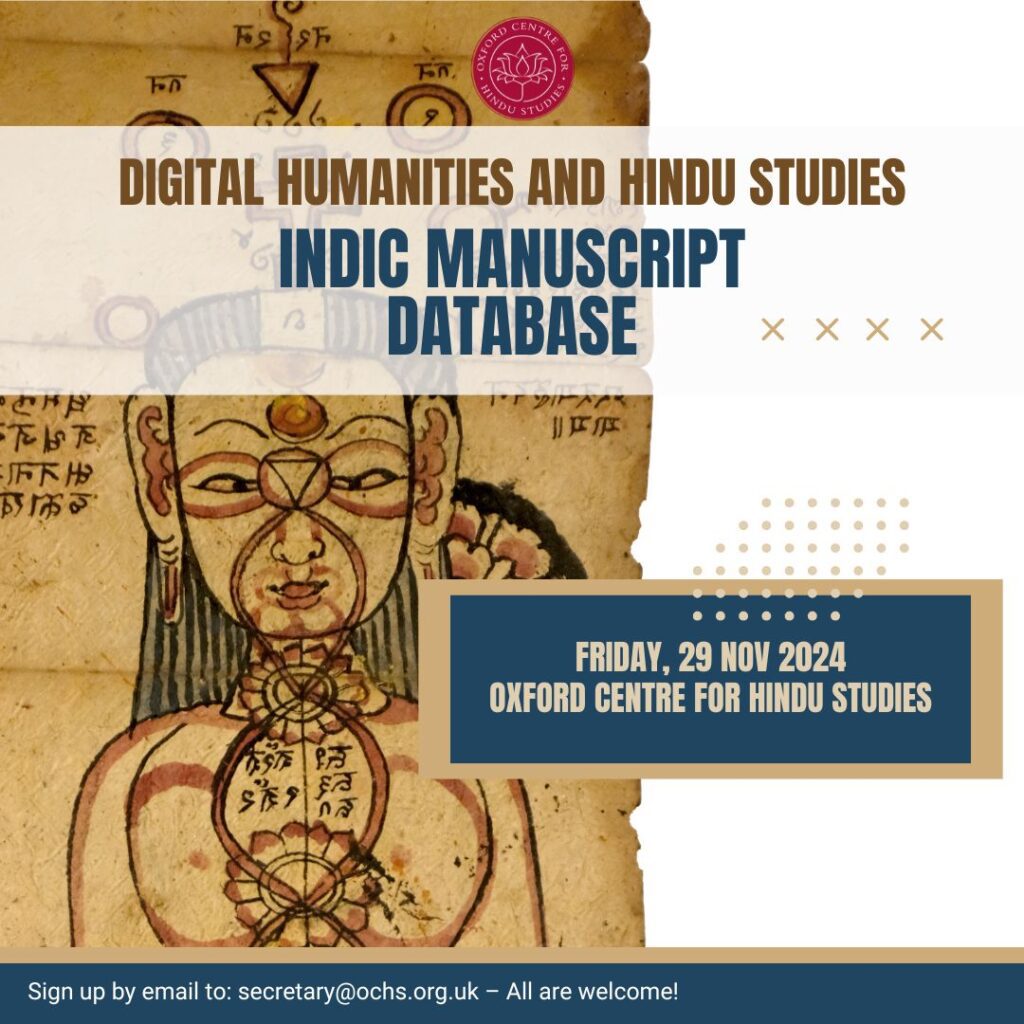Convened by Dr Bjarne Wernicke-Olesen
Week 4, Tuesday 20 May, 2.00-3.45, OCHS Library
This series of termly seminars focuses on current DPhil research in Indic religions with a Study of Religion oriented approach: in each seminar, 2-3 DPhil candidates will present on a topic they are investigating for 20 min and then open it for discussion on key questions. These informal seminars offer an excellent way to discover and learn about current research in the field of Hindu Studies as well as an opportunity for candidates to present and receive valuable feedback on work in progress. All researchers, graduates and finalists in all areas are welcome to join. Tea and biscuits will be served.
An Examination of the Soteriological Role of Yoginīs in Śākta Tantric Śaivism
Gonzalo Fernandez
My thesis investigates the role that yoginīs (semi-divine spirits) have to play in granting liberation to their devotees, a topic that has not been addressed in any detail by scholars. The method is text-historical and philological and involves an analysis of tantras and exegetical materials in order to determine the different ways in which yoginīs liberate. The principal focus of the thesis will be on the Netratantra, an early ninth century work that serves as a prototypical example of yoginīs performing a salvific role and reveals a number of different methods employed to achieve this aim.
The key goals of liberation and the grant of supernatural powers evidenced in the tantras allowed Śākta tantric Śaivism to absorb other traditions and to broaden its appeal. This includes low caste heterodox practices involving possession and the worship of yoginīs. It is argued that this incorporation of popular extraneous religious practices was made possible by interpreting yoginīs as salvific agents of Śiva or as aspects of Śiva’s active power (Śakti). It is further argued that the different methods employed by yoginīs to liberate their devotees came to be understood through the lens of a distinctive Śākta soteriology, that was increasingly congruent with the core teachings of Śākta tantric Śaivism.
Translation, Meaning and Metaphor: Two Śākta Readings of a Pandemic in Calcutta
Utsa Bose
The so-called third bubonic plague pandemic—believed to have originated in southern China— reached British Hong Kong in 1894, from where it travelled to Bombay in 1896. From Bombay, it soon spread to other cities in British India. In April of 1898, Calcutta, the capital of British India, was declared infected with plague. While the pandemic saw a great scramble for diagnosis, changes in medical management and general administration, it also brought to the fore fundamental questions regarding causation, life, and suffering.
While the plague pandemic has been looked primarily through the lens of medical and scientific history, the philosophical and theological challenges it engendered have received comparatively lesser attention. Calcutta, while being the capital of British India, was also undergoing a strong Śākta revivalism in this period, and these religious undercurrents inflected narratives about the plague. My presentation looks at two such Śākta readings of the plague, analysing the similarities, divergences and methods through which the pandemic was understood, explained and translated.
The Transfer of Energy Among Goddesses: Codification and Transformation in Bhaktapur’s Śākta Traditions
Sharvi Maheshwari
This presentation examines how goddess figures in Bhaktapur, Nepal, engage in dynamic processes of transformation and energy transfer within the city’s rich Śākta traditions. Rooted in the cultural and religious history of the Newar community, these practices reflect a fusion of local tantric rituals with broader pan-Indic and Brahmanical influences. To analyze this ritual complexity, I introduce a conceptual model—referred to as The Codes—which helps deconstruct and reassemble tantric practices by identifying the logics behind ritual absorption, symbolic exchange, and the layering of traditions. The model reveals how goddess systems in Bhaktapur evolve through a process of ritual codification, absorbing elements from other traditions to gain legitimacy and broader appeal.
The presentation draws on ethnographic fieldwork and performance analysis of the Navadurgā festival cycle to illustrate these patterns. Through three case studies, I explore how energy is transferred among goddesses and between divine and human actors, highlighting the polyvalent nature of these figures. Ultimately, this research contributes to understanding how peripheral Śākta traditions both preserve and adapt their identities in response to historical and cultural shifts, offering a new lens on ritual transformation in South Asian religious practice.


